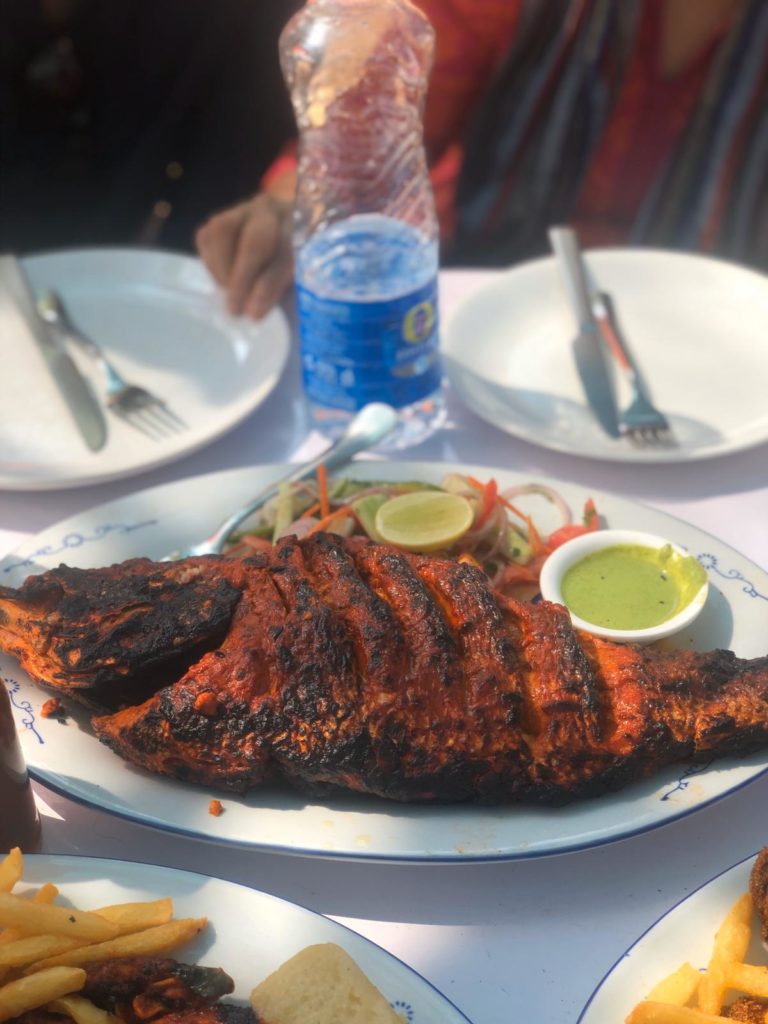In so far as osculations go, it was a pretty smoochy affair lasting all of 450 years – causing much discomfort to the Dutch and bemusement to the British. The French reacted with feigned indifference (even as they stole furtive sidelong glances green with envy) and the Danes (with their different agenda) just couldn’t be dragged into the drama.
But make no mistake; it was not all ‘love at first sight’. Smarting under the hegemony of Adil Shah of Bijaipur, the Kadambas of Chandor were desperately looking for assistance. The knights in shining armour who had just arrived in Calicut sailing from Lisboa, were drafted in through an agent in the Vijayanagara empire. They got into the act only to be routed by the superior forces of Adil Shah. Then the monsoon played a hand with the heavy downpour bringing in silt and blocking the free flow in river Mandovi thus effectively closing the exit route for the Europeans. The Brahmin community in Panjim took pity on the wounded Portuguese and interceded with Adil Shah for a safe passage for them.
Half the fleeing Portuguese made their way back to Calicut and the southern parts of the Malabar coast and the other half went back home and returned with reinforcements: end of Adil Shah. The Portuguese extracted their pound of flesh from the Kadambas and settled down in what is known today as Old Goa until a plague drove them to Panjim at the mouth of the river Mandovi.
As history lessons go, the above is awfully abridged, strikingly simplified and severely sanitized. You can imagine that the battles were bloody and the death toll horrifying; and multiple families both in Portugal and Goa were left to mourn their loss for many a year.
By and by the Portuguese consolidated themselves and started administering over the territory they held. Gradually the culture and language of the Portuguese bagan to rub off on the Goanese – which was basically Konkani speaking. This process was aided by the Portuguese approach to religion. They seem to have had this notion that everybody must become Catholic – on pain of death in the worst instance, and otherwise at least on pain of forfeiture of property. And they went about implementing this policy with ruthlessness. Ironically Francis Xavier whose mortal remains are preserved till date in the Basilica of Bom Jesus in Old Goa, stood at the forefront in killing the “pagan” Konkanis and destruction of their temples.

Ah….unabashed forced religious conversion! Accompanied by renunciation of native Konkan names in favour of foreign appellations. In a recent trip to Goa, we met the descendants of two “zamindari” families that had thus become completely europeanized and were rewarded with the privilege of holding on to their ‘own’ property!

(Braganza House – Drawing Room) 
(Braganza House – Ball Room)
I think this aspect of colonization merits analysis. Just why were the Portuguese doing it? What was their motivation? At one level, it could been the desire to simplify administration and facilitate the implementation of uniform civil laws. At another level, they could have believed that they were carrying out the commandment of God. A problem arises here. The particular verses in the Bible on which this whole phenomenon of proselyti sation is pegged is found in the Gospel according to St.Matthew, chapter 28 and verse 19&20. Let me quote from the New International Version: (Jesus says)” Therefore go and make disciples of all nations, baptizing them in the name of the Father and of the Son and of the Holy Spirit, 20 and teaching them to obey everything I have commanded you ….”. This is known as the Great Commission in evangelistic circles.
The marauding Portuguese (and some of their modern day missionary successors – both Indian and foreign) seem to have missed out on the crucial elements of this directive i.e., “discipling” and “teaching” and latched on to just the “baptizing” portion for that is something that can be enumerated. The ‘numbers’ seem to have mattered to somebody, somewhere whether those baptized were really discipled and were believers or not. Perhaps the priests who came with the Portuguese forces had to report back on the “convert” numbers; Vatican might have been interested in them. Drawing an analogy, some modern day evangelists may be under pressure to show ‘results’ to funding organizations. It is evident that in both cases this was a totally unavailing effort. While in the former case, the Portuguese seem to have got away, in the latter instance the government of the day has reasons to be wroth.
Howsoever obnoxious the Portuguese were in this matter, one significant extenuating reason can be put forward in their defence; they did not know the Bible. With the Catholic church zealously restricting the availability of the Word of God to its priestly community and generally discouraging the laity from studying the scriptures for themselves, the notion prevailed that they were rendering a service to God by bringing people into their religious fold,willy-nilly. There was no Mother Teresa to demonstrate God’s love in action, there was no Harry Andrews to act out God’s compassion, no William Carey to show God’s care, and no Father Schwartz to reflect God’s grace and patience.
I am afraid no such mitigant is available to the modern evangelist guilty of forced conversions. The Bible is in his hands and he should well understand that what God is looking for is not a head-count but a transformed heart; that He is not interested in mere numbers but convicted souls; not Christian names but followers of Christ; not religion but faith; not god- appeasing rites but assured relationship with the Almighty.
Now this obviously calls for proclamation of the gospel, i.e., “For God so loved the world that He gave His only begotten Son, that whoever believes in Him should not perish but have everlasting life” which at once makes clear that redemption (salvation from sin) is possible only through God the Son (Jesus Christ), all that is required is a simple act of believing (that Christ died for us on the cross, paying the penalty for our sin) and that this message is universal and not to be confined to any one group. Baptism is a meaningless ritual without this conviction.
Yes, it is possible to belong to a ‘religion’ – merely by externals and for statistical purposes – without the essential ‘faith’. It is plainly misleading to substitute one for the other. The Bible is quite categorical that ” to all who did receive him (Jesus) , to those who believed in his (Jesus’s) name, he gave the right to become children of God” (note:- not to all who belong to Christianity as a religion). So there is such a thing as volitional decision to accept Jesus as saviour and Lord. In reality ‘religion’ need not enter the equation at all. So it is plainly a distortion of facts to label all conversion as ‘forced’. God has given us a free mind and it is for us to choose whom we believe in the light of available information.
I hope the foregoing treatise throws sufficient light on the vexed question of forced conversions. Time to move on.



(ferry on the river Mandovi) 
(a Portuguese dance on board)

As briefly mentioned before, I made a recent visit to Goa and this article is the outcome of the various inputs I gathered there, both aural and visual. Today, all hostility is a distant memory and it is a treat to visit Goa, experience and enjoy the cultural distinctions that make the state such a delightful place to tour. The numerous sandy beaches, the variety of water sports, the sartorial distinction, the proliferation of Portuguese names, the myriad churches, the abundance of mouth-watering sea food, the ubiquitous Feni, ferry ride on Mandovi, the lingering touch of Europe – all of these have left a definite “impressão de batom”.

(on 31st January street, Sao Tome,Panjim) 
(inside view of the Cafe with the charming hostesses)
A perfect holiday destination indeed!
_____________________________________________